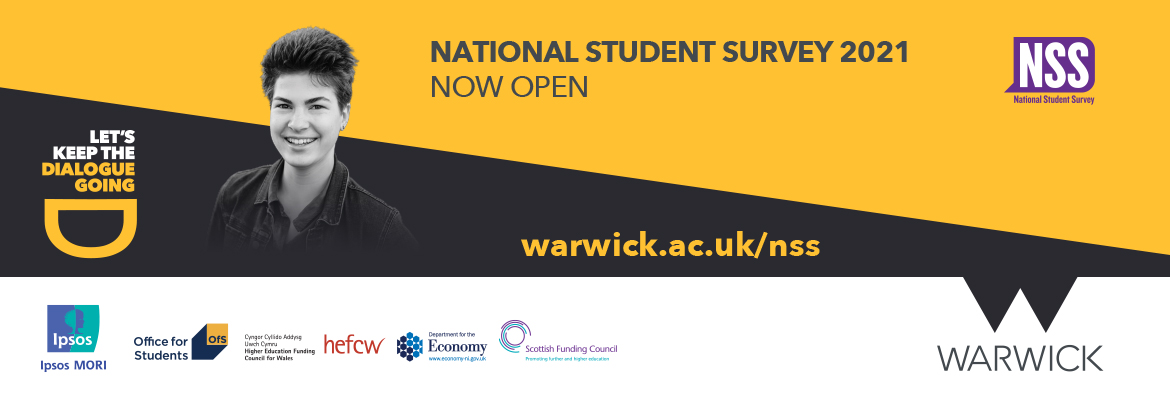National Student Survey now open to finalists

- NSS is a national survey of final year undergraduates at all UK universities, run independently by Ipsos MORI
- The survey asks for your views on your whole course and covers teaching, assessment, resources and support
- The survey is open from Monday 8 February 2021 for Warwick finalists and takes ten minutes to fill in
- Your personalised link will be emailed to you on Thursday 11 February 2021 or go direct to thestudentsurvey.com
The NSS is a really important way for you to reflect on your experience at Liberal Arts. It’s a great opportunity to think about what you found productive or enjoyable, and it gives you a way to make suggestions for our continuous improvement. We take your responses seriously: we’ve worked hard to ensure our move to blended learning provided an equally effective approach to Problem-Based Learning and student-led research activities; that staff remained highly accessible and supportive; that we continued to work to make our department as equitable, liberated, and proactive as possible; and to find new ways to include students’ views into all levels of departmental decision-making. This has been a difficult year for everyone, but we're really proud of everything students and staff have been able to achieve despite such serious barriers.
We’re pleased that students in previous years have felt that we took their feedback seriously. Please do fill in the NSS and help us to keep making this such an excellent department. If you have individual or more immediate feedback, ideas, questions, or concerns, please don’t hesitate to bring them to Gavin, to your personal tutor, or to the course reps on the Liberal Arts Student-Staff Liaison Committee.
Thank you.
Dr Stéphanie Panichelli-Batalla | Head of the School for Cross-faculty Studies
Dr Gavin-Schwartz-Leeper | Director of Student Experience, Liberal Arts
